All Research Articles
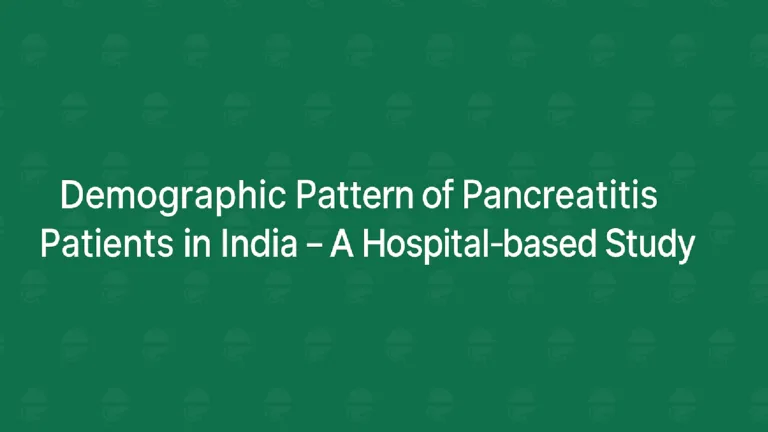
Demographic Pattern of Pancreatitis Patients in India – A Hospital-based Study
A hospital-based study on 2,050 pancreatitis patients across India found that 83% were male, with an average age of 24 years, and 75% aged between 19–45. Alcohol use was reported by 33.6% and tobacco by 18.4%, while genetic and gallstone-related causes accounted for 8.8% and 5% respectively. The findings suggest emerging lifestyle and regional risk factors, but broader studies are needed for definitive insights.
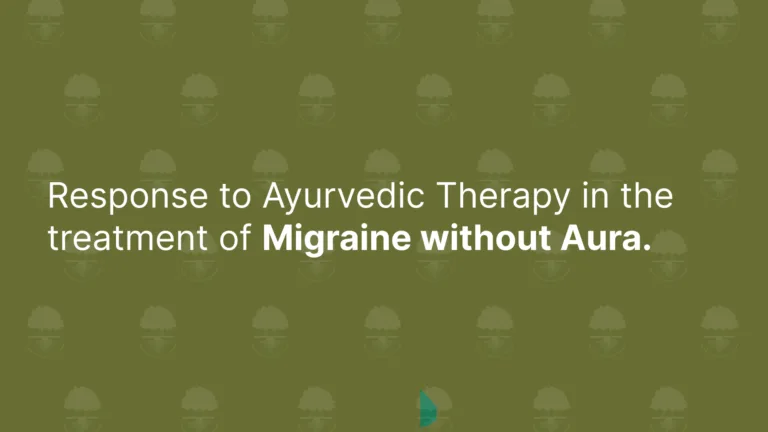
Response to Ayurvedic therapy in the treatment of migraine without aura
A study on 204 migraine patients using an Ayurvedic Treatment Protocol (AyTP) showed 35.2% had complete relief, 35.2% had mild episodes without medication, and 70.5% experienced reduced pain frequency and intensity. The preliminary results suggest the AyTP may be effective, though the study's design limits firm conclusions.
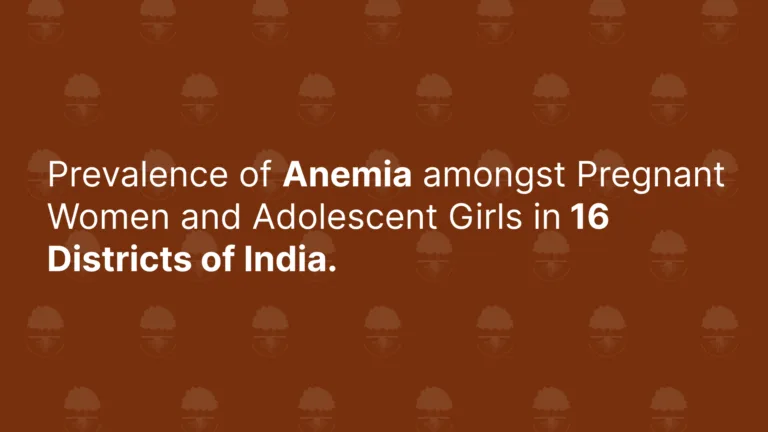
Prevalence of Anemia among Pregnant Women and Adolescent Girls in 16 Districts of India
Nutritional anemia is widespread in India, affecting 84.9% of pregnant women and 90.1% of adolescent girls. Severe anemia is prevalent in both groups. The Government of India provides iron and folic acid to pregnant women, but no similar program exists for adolescent girls. Interventions should address iron, B12, and folic acid deficiencies.
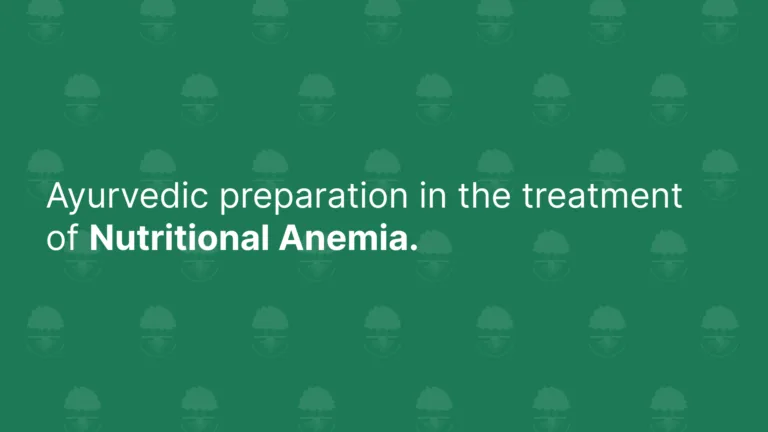
Ayurvedic preparation in the treatment of nutritional anemia
A pilot study on 600 anemic women showed the highest hemoglobin gain (1.8 g%) with a combination of Ayurvedic preparations SS and Ayas, followed by Ayas (1.6 g%), SS (1.5 g%), and IFA tablets (1.1 g%). SS, a non-iron Ayurvedic preparation, improved iron absorption and showed promising results with minimal side effects.
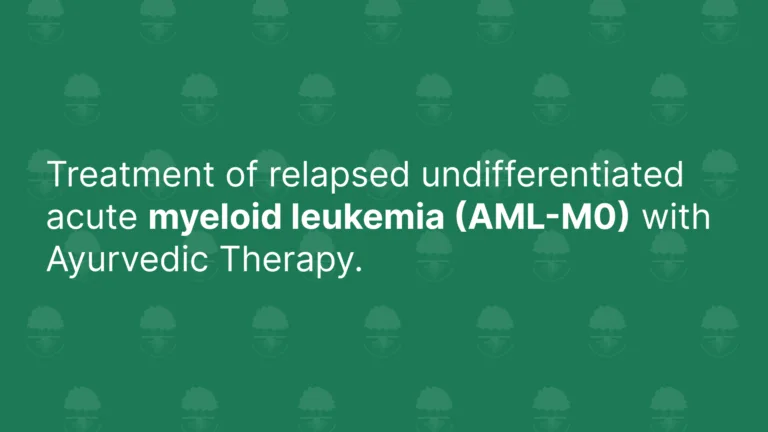
Treatment of relapsed undifferentiated acute myeloid leukemia (AML-M0) with Ayurvedic therapy
A 16-year-old boy with AML-M0 relapsed after chemotherapy in 1997. He opted for Ayurvedic therapy (AYT) instead of further treatment. After six months, he was in remission and continued AYT for five years, with intermittent maintenance for two years. He has been disease-free and healthy for 12 years.
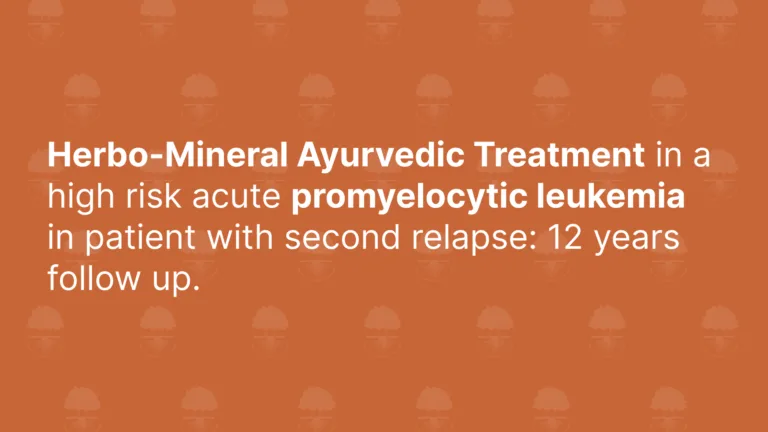
Herbo-mineral ayurvedic treatment in a high risk acute promyelocytic leukemia patient with second relapse: 12 years follow up
A 47-year-old diabetic male with high-risk AML-M3 relapsed after multiple chemotherapy treatments. In 1997, he opted for a pilot Ayurvedic study and was treated with Navajeevan, Kamadudha Rasa, and Keharuba Pisti. He achieved complete remission and has remained disease-free for 13 years without side effects from the alternative treatment.
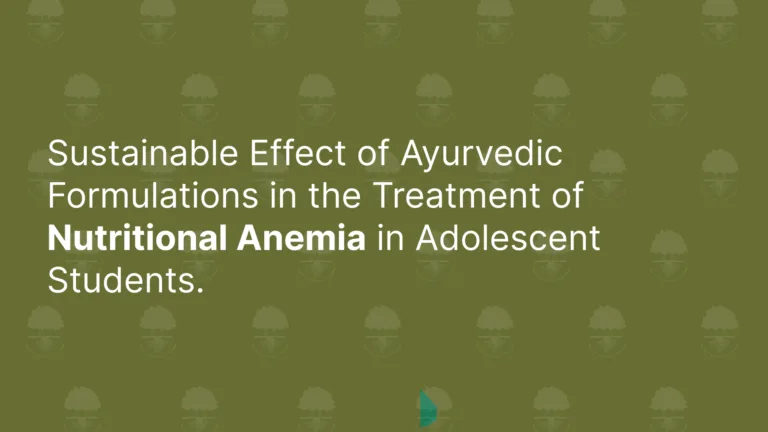
Sustainable Effect of Ayurvedic Formulations in the Treatment of Nutritional Anemia in Adolescent Students
This study evaluated the impact of Ayurvedic treatments (Sootshekhar Rasa and Sitopaladi Churna) on nutritional anemia in 1322 adolescent students in Dehradun. After 90 days of treatment, significant hemoglobin improvements were seen in the treatment groups, especially those receiving a daily dose of 250 mg SR and 400 mg SC. The study concluded that this combination effectively improves anemia in adolescents without adverse effects.
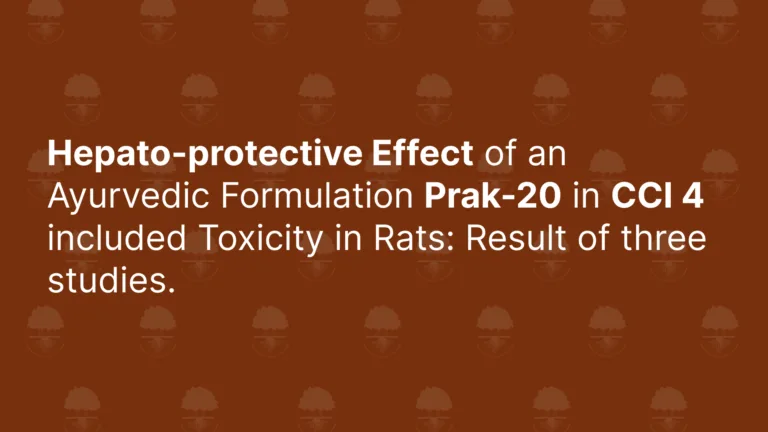
Hepato-protective Effect of an Ayurvedic Formulation Prak-20 in CCl 4 Induced Toxicity in Rats: Results of Three Studies
Prak-20, an ayurvedic herbo-mineral formulation, was studied for its hepato-protective effects in rats. It showed no significant liver damage or elevated enzyme levels compared to controls. In higher doses, it reduced liver enzymes by up to 54% and minimized liver damage. These results suggest Prak-20 is effective in protecting the liver, with further research needed on its mechanism.
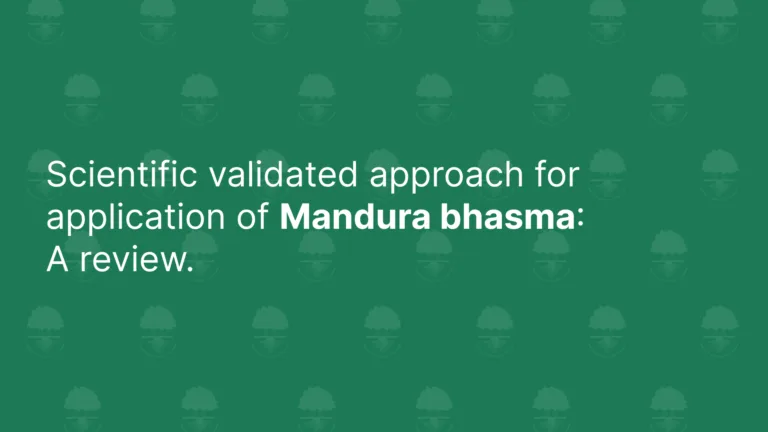
Scientific validated approach for application of Mandura bhasma A review
Mandura (iron rust) is purified and calcined in Ayurveda to create Mandura Bhasma, used for conditions like spleen and liver enlargement, jaundice, oedema, and anemia. Our study found that Prak-20 aligns with the classical dose schedule for Mandura Bhasma.
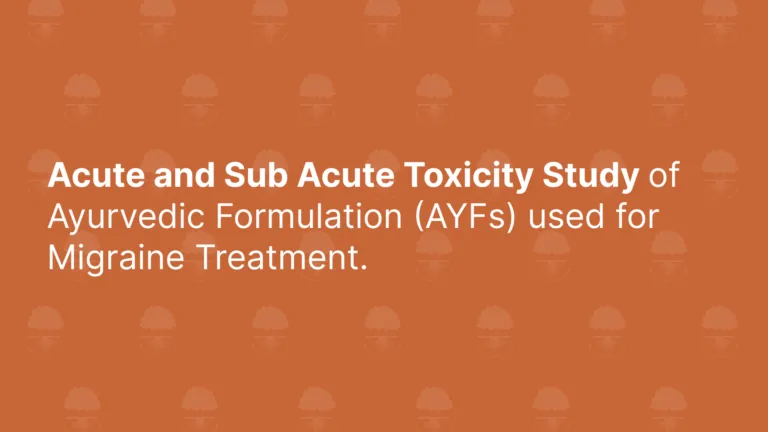
Acute and Sub acute Toxicity Study of Ayurvedic Formulation (AYFs) Used for Migraine Treatment
This study tested the safety of five Ayurvedic formulations for migraine prevention in rats and mice. Acute and sub-acute toxicity studies showed no toxic effects at doses up to 10 times the human dose. A slight mortality in high-dose groups was unrelated to treatment. The formulations are considered safe, but further chronic toxicity studies are needed.
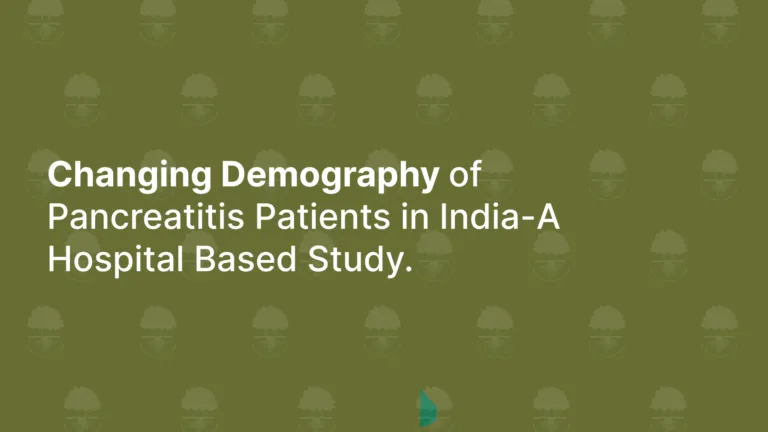
Changing Demography of Pancreatitis Patients in India -A Hospital Based Study
Pancreatitis is rising globally, with major risk factors including alcohol, tobacco, and family history. A study of 800 patients in North India found higher incidences among non-alcoholic, non-tobacco users, and those with no family history. The disease mostly affected men (4.6:1) aged 19-45, particularly in the service class and students. Further research is needed to explore its causes and extent in the region.
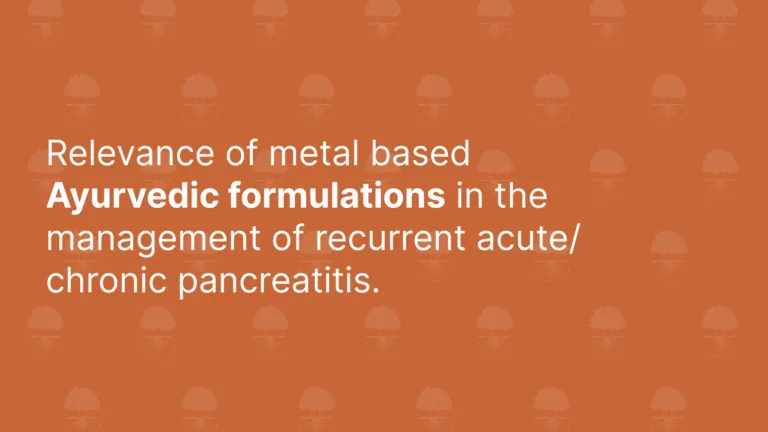
Relevance of metal based Ayurvedic formulations in the management of recurrent acute/ chronic pancreatitis
This study reports on 250 cases of Recurrent Acute Pancreatitis (RAP) and Chronic Pancreatitis (CP) treated with an Ayurvedic herbo-mineral formulation, along with a balanced diet and lifestyle changes. Significant improvement was seen in patients who completed the treatment.
